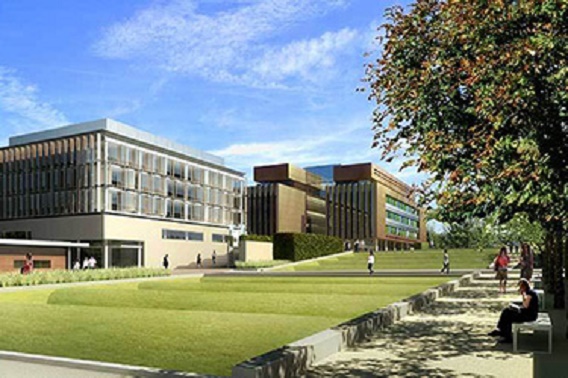University of Southampton: Young filmmakers urge others not to let their guard down as restrictions ease
Young people across the south have turned their hand to creating films in an effort to urge their peers to continue keeping themselves and their communities safe from the spread of COVID-19.
As the further easing of restrictions are eased (MAR 29) the films are being released on social media to encourage young people to keep following the guidance, particularly over the Easter break.
Organisations including LifeLab and Southampton Children’s Hospital at University Hospital Southampton, were awarded funding for the film projects through the Southampton City Council COVID-19 Innovations Grant.
They then worked with young people in schools, colleges and youth groups to produce short films with the help of professional production companies.
LifeLab, a University of Southampton education programme for young people discovering the science behind health messages, teamed up young people with filmmakers. Together they co-created a range of films with messaging around the importance of sticking to the guidance and reflecting on life in lockdown in a range of different styles.
Young actors from Richard Taunton Sixth Form College and Itchen College participated in the films that were produced by Robin Creative Media with the help of students from Toynbee School in Eastleigh. Separately students at Cantell School in Southampton created a video with clips submitted by students to demonstrate how young people were making a difference with support from Southpoint Films.
The Southampton Children’s Hospital Youth Ambassador Group (YAG) used their funding to produce a collection of three films with education and development film makers, In Focus. The films give a young person’s view on the impact of COVID-19 and cover topics including public health messaging and wellbeing through poetry and animation.
YAG is made up of young people aged 11 to 17 from across the South who have a connection to the hospital either as a patient or relative and who want to get involved and improve services for young people.
Ipsa Dash, a youth ambassador, said: “During these unprecedented times, it felt like nothing was in our control what with the never ending uncertainty but I believe this project made me realise we really could make a difference. I am really pleased with the outcome.”
Dr Kathryn Woods-Townsend, programme lead for LifeLab, said: “These projects were about giving young people ownership of messaging that affects them. This was a great opportunity for them to shape the sort of communications they want to see when it comes to their own health and that of their community.”
Louisa Green, divisional head of nursing and professions for SCH, said: “These videos are a wonderful example of how committed our young ambassadors are in making a difference to the health and wellbeing of their communities. The films have some really strong messaging around the impact Covid on young people but also their commitment to keep going with following the guidance as restrictions ease.
“Projects like these really help us towards our goal of our COVID ZERO campaign, having no transmission of the virus within our hospitals, and the community have a vital part of play in that.”
The COVID-19 Innovations Grant supports projects that target groups in which prevalence of COVID-19 is highest or may increase, and groups which otherwise might not be reached.
Debbie Chase Director of Public Health at Southampton City Council said: “My thanks to all the young people involved in developing these films. They are both creative and powerful in their messaging. We know that how a message is conveyed, and the way it makes us feel, is important in shaping safe and healthy attitudes and behaviours. These films have been created by young people for young people and form part of a selection of videos created by members of Southampton communities for our communities. We all have a responsibility to stay safe as restrictions ease and it’s also important that we help our families, peers, work colleagues and local communities to do the same.”

